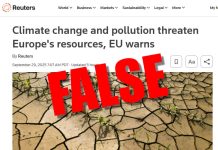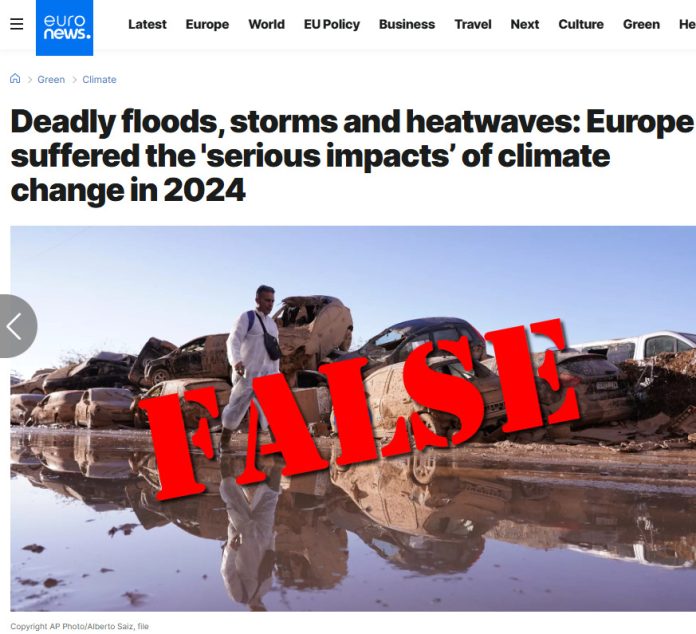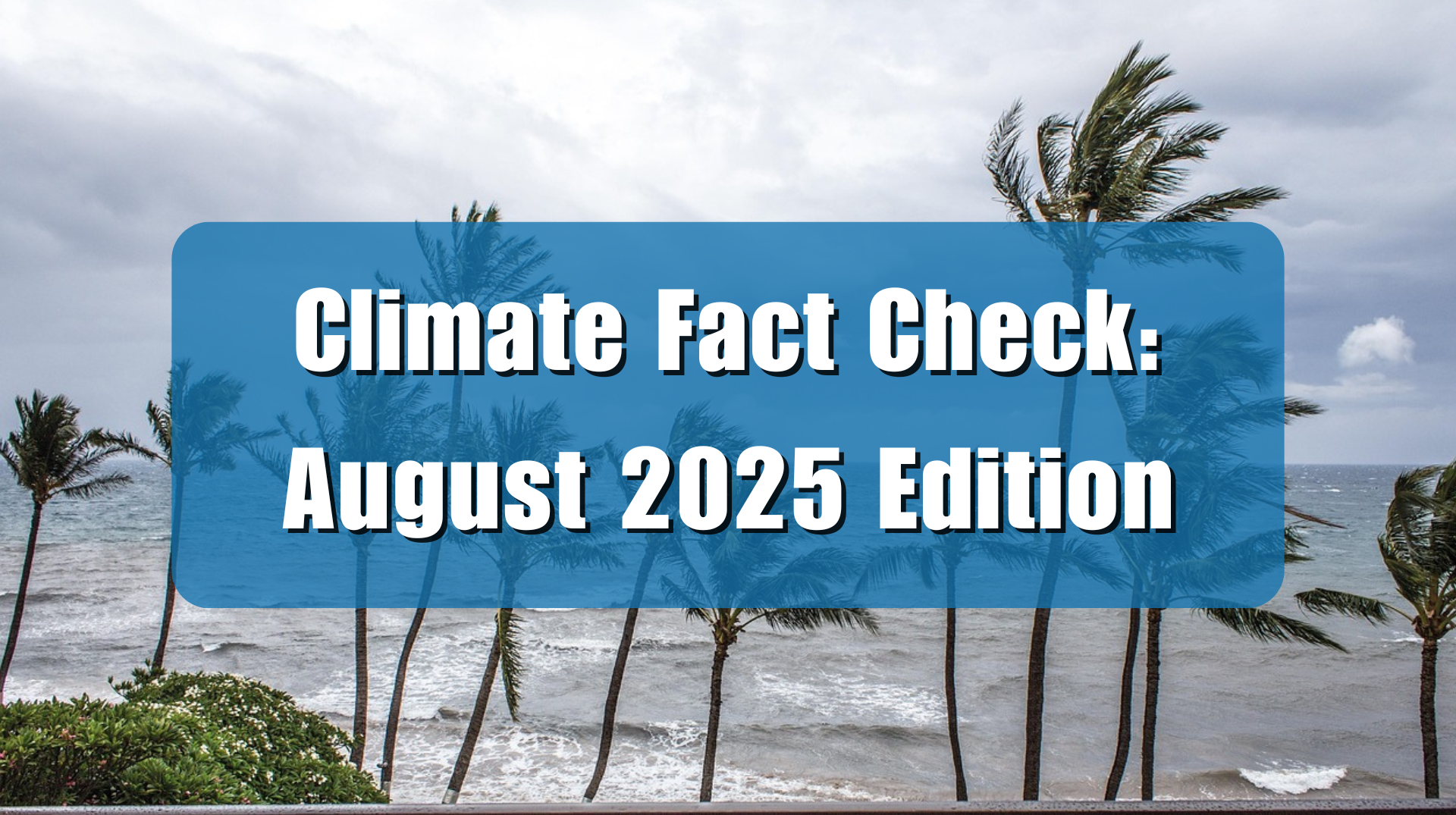A recent post by Euronews, titled “Deadly floods, storms and heatwaves: Europe suffered the ‘serious impacts’ of climate change in 2024,” claims that Europe is experiencing very severe impacts from climate change, citing heatwaves, wildfires, and flooding, among other conditions. This is false. Europe experienced many different kinds of severe weather across the continent in 2024, but this is not unusual.
Although part of the story is hidden behind a paywall, the Euronews post details several examples of supposed climate-change fueled extreme weather events from last year. The main ones mentioned were the wildfires in Portugal, flooding in Valencia, Spain, and heatwaves in parts of the continent.
“Storms were often severe, flooding was widespread, and parts of the continent were gripped by record-breaking heatwaves,” Euronews claims.
Addressing the claims about wildfires first; Euronews said that “Wildfires in Portugal in September burned 110,000 hectares of land in a week – a quarter of Europe’s total annual burnt area for 2024.”
Luckily, Europe’s Copernicus service, the very group that published the State of the Climate report that Euronews based their coverage on, publishes an annual wildfire report, breaking it down by country. Portugal, according to their data, is not suffering from any long term trend in increasing wildfire size or quantity. (See figure below)
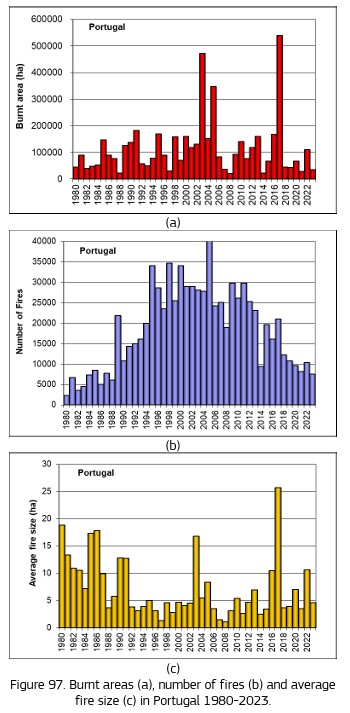
Fire trends will vary from country to country in Europe, but satellite data does not indicate worsening fires for Europe, as discussed in detail here, globally wildfires are trending downwards.
The flooding in Valencia, Spain was likewise not unprecedented. As Climate Realism covered when the news was live in the post “Flooding Facts Drowned by Climate Hysteria: The BBC Ignores Spain’s Weather History,” Valencia suffered from similar flooding in 1897, 1957, and 1996, decades of warming ago. The Intergovernmental Panel on Climate Change itself does not indicate that evidence has yet emerged for increases in flooding or heavy precipitation. (See figure below)
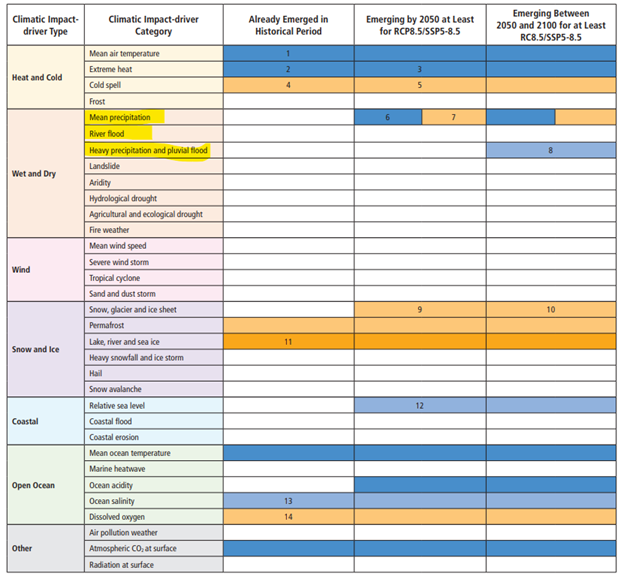
Likewise, while it is true that parts of Europe suffered from heatwaves last year, heatwaves by themselves are not proof of any devastating impact of global warming. Rising global average temperature does not necessarily cause higher temperature spikes during heatwaves. A May 2022 peer reviewed publication, Attributing and Projecting Heatwaves Is Hard: We Can Do Better, says:
However, land use changes, vegetation change, irrigation, air pollution, and other changes also drive local and regional trends in heatwaves. Sometimes they enhance heatwave intensity, but they can also counteract the effects of climate change, and in some regions, the mechanisms that impact on trends in heatwaves have not yet been fully identified.
The strongest influence on temporary heatwave events are the natural El Niño warm periods in the Pacific, which cause hotter-than-average temperatures. 2023 and 2024 had a quite strong El Niño, which influenced temperature anomalies globally, as explained in the post “No, CNN and BBC, 2024 Wasn’t the ‘Hottest Year on Record’ When ALL of the Available Evidence Is Considered.”
Even Wikipedia cites the 23/24 El Niño as the cause of severe weather events, saying, “The 2023–2024 El Niño was regarded as the fifth-most powerful El Niño–Southern Oscillation event in recorded history, resulting in widespread droughts, flooding and other natural disasters across the globe.”
Most importantly, the data show no long-term trend of extreme heat or extended heatwaves across Europe, a trend that would be necessary to suggests that climate change was behind this years heatwave.
All in all, this appears to be yet another scare story that does not take all the available evidence into account when attempting to attribute weather events to climate change. Euronews should stick to the news, rather than promoting alarmist spin for every weather event that comes along.










